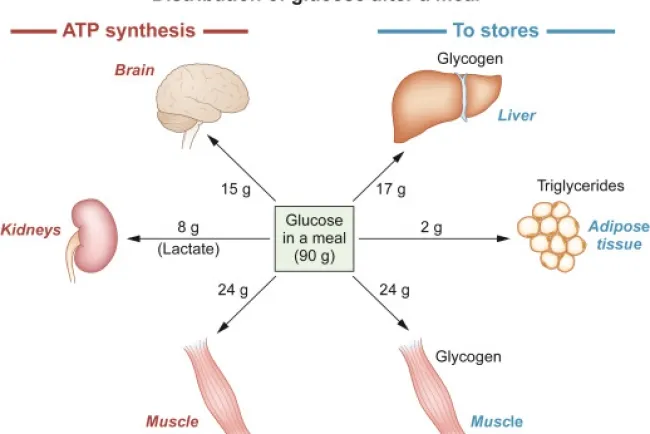Understanding Blood Pressure: A Comprehensive Guide...!!!
Blood pressure is a critical indicator of cardiovascular health, and maintaining it within a healthy range is essential for overall well-being. Understanding the factors that influence blood pressure, recognizing the signs of hypertension and hypotension, and adopting a healthy lifestyle can help manage and prevent blood pressure-related health issues.

Blood pressure is a vital sign that measures the force of blood against the walls of the arteries as the heart pumps it throughout the body. It is a crucial indicator of cardiovascular health and provides insights into a person's overall well-being.
What is Blood Pressure?
Blood pressure is the pressure exerted by circulating blood on the walls of blood vessels. It is measured in millimeters of mercury (mmHg) and recorded as two numbers: systolic and diastolic pressures.
-
Systolic Pressure: The top number in a blood pressure reading represents the pressure in the arteries when the heart beats and pumps blood. It indicates the maximum pressure exerted on the artery walls.
-
Diastolic Pressure: The bottom number represents the pressure in the arteries when the heart is at rest between beats. It indicates the minimum pressure exerted on the artery walls.
For example, a blood pressure reading of 120/80 mmHg means a systolic pressure of 120 mmHg and a diastolic pressure of 80 mmHg.
Types of Blood Pressure
-
Normal Blood Pressure:
-
Range: Systolic less than 120 mmHg and diastolic less than 80 mmHg.
-
Implications: Indicates a healthy cardiovascular system and a lower risk of heart disease and stroke.
-
-
Elevated Blood Pressure:
-
Range: Systolic 120-129 mmHg and diastolic less than 80 mmHg.
-
Implications: Suggests a higher risk of developing hypertension if lifestyle changes are not made.
-
-
Hypertension Stage 1:
-
Range: Systolic 130-139 mmHg or diastolic 80-89 mmHg.
-
Implications: Requires lifestyle changes and, in some cases, medication to manage and reduce the risk of cardiovascular complications.
-
-
Hypertension Stage 2:
-
Range: Systolic 140 mmHg or higher or diastolic 90 mmHg or higher.
-
Implications: Requires medical intervention and close monitoring to prevent severe health issues.
-
-
Hypertensive Crisis:
-
Range: Systolic higher than 180 mmHg and/or diastolic higher than 120 mmHg.
-
Implications: A medical emergency that requires immediate attention to prevent life-threatening complications.
-
Factors Influencing Blood Pressure
Several factors can influence blood pressure, including:
-
Age: Blood pressure tends to increase with age due to changes in blood vessel elasticity and other age-related factors.
-
Genetics: A family history of hypertension can increase the risk of developing high blood pressure.
-
Diet: High salt intake, excessive alcohol consumption, and diets low in potassium can raise blood pressure.
-
Weight: Being overweight or obese can increase the risk of hypertension.
-
Physical Activity: Lack of regular physical activity can contribute to higher blood pressure.
-
Stress: Chronic stress can lead to temporary spikes in blood pressure.
-
Smoking: Tobacco use can damage blood vessels and raise blood pressure.
-
Health Conditions: Conditions like diabetes, kidney disease, and sleep apnea can affect blood pressure.
Health Implications of Blood Pressure
-
High Blood Pressure (Hypertension):
-
Hypertension is a major risk factor for cardiovascular diseases, including heart attack, stroke, and heart failure. It can also lead to kidney damage, vision loss, and other serious health issues.
-
-
Low Blood Pressure (Hypotension):
-
Hypotension can cause dizziness, fainting, and, in severe cases, shock. It may result from dehydration, blood loss, or certain medical conditions and medications.
-
Managing Blood Pressure
Effective management of blood pressure involves a combination of lifestyle changes and, in some cases, medication. Here are some strategies to maintain healthy blood pressure:
-
Healthy Diet:
-
Follow a balanced diet rich in fruits, vegetables, whole grains, lean proteins, and low-fat dairy. The DASH (Dietary Approaches to Stop Hypertension) diet is particularly effective in lowering blood pressure.
-
-
Limit Sodium Intake:
-
Reduce salt consumption to help lower blood pressure. Aim for less than 2,300 mg of sodium per day, and ideally less than 1,500 mg for those with hypertension.
-
-
Regular Physical Activity:
-
Engage in at least 150 minutes of moderate-intensity aerobic exercise or 75 minutes of vigorous-intensity exercise per week. Activities like walking, swimming, and cycling are beneficial.
-
-
Maintain a Healthy Weight:
-
Achieve and maintain a healthy body weight to reduce the risk of hypertension.
-
-
Limit Alcohol and Tobacco:
-
Limit alcohol consumption to moderate levels and avoid tobacco use to promote cardiovascular health.
-
-
Manage Stress:
-
Practice stress-reducing techniques such as deep breathing, meditation, yoga, and mindfulness.
-
-
Medication:
-
Follow prescribed medications as directed by a healthcare provider to manage high blood pressure effectively.
-
Blood pressure is a critical indicator of cardiovascular health, and maintaining it within a healthy range is essential for overall well-being. Understanding the factors that influence blood pressure, recognizing the signs of hypertension and hypotension, and adopting a healthy lifestyle can help manage and prevent blood pressure-related health issues. Regular monitoring and consultation with healthcare providers are key to ensuring optimal blood pressure control and reducing the risk of serious health complications.
What's Your Reaction?

















